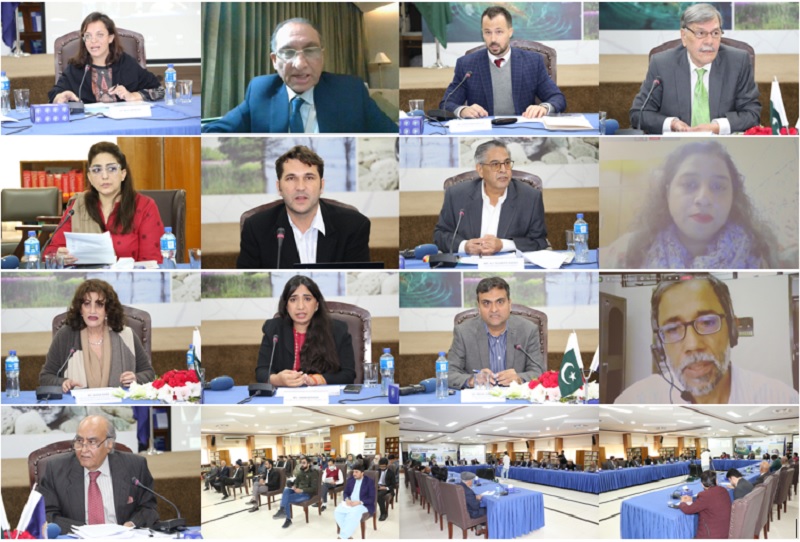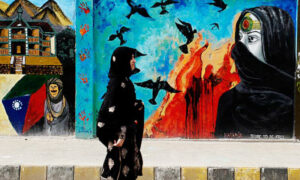“The greatest threat to our planet is the belief that someone else will save it.” – Robert Swan
In recent years, the undeniable reality of climate change has emerged in various guises, from melting glaciers and record-breaking heatwaves to erratic rain and snow patterns. This global challenge has not spared South Asia, impacting millions and entailing significant economic costs. As South Asia confronts the escalating consequences of climate change, a shift towards cooperative diplomacy becomes paramount to mitigate and adapt to these multifaceted threats.
Climate change, a phenomenon far from abstract, has inflicted palpable damage upon South Asia. The region witnessed a staggering 48.3 million people affected by climate-related crises, with economic losses tallying up to a staggering 35.6 billion USD. Unprecedented climatic events have struck with relentless force, particularly affecting India and Pakistan. To grasp the enormity of the situation, it is crucial to delve into the repercussions of climate change on this diverse and populous region. Moreover, devising effective policies to curtail the impending disasters is a necessity.
Pakistan’s ordeal in 2022 exemplified the dire impacts of climate change. Historic floods disrupted lives, affecting over 30 million individuals and displacing 7.9 million. The agricultural sector bore a severe brunt, with 9.4 million acres of farmland submerged and devastating losses in cotton, rice, and sugarcane crops. The cumulative damage stood at a staggering 30 billion USD, a grim testament to the scale of destruction. Meanwhile, India grappled with shifting climatic patterns that thrust a fifth of the nation into drought conditions in 2021. Subsequent heatwaves ravaged crops, with a 50 percent drop in the mango harvest and 10 percent reduction in wheat yield. These events disrupted food supply chains, damaged exports, and deepened food insecurity across the region.
Afghanistan, despite its tumultuous political landscape, grapples with its own climate-induced calamities. Frequent floods and prolonged droughts exacerbate an already vulnerable situation. Between 2015 and 2020, 50 million Afghan citizens were affected by droughts, testifying to the extent of the crisis. However, Afghanistan’s diplomatic isolation on the global stage hampers its ability to seek international support to combat climate-related issues.
A haunting specter looms over South Asia in the form of smog, which triggers hazardous levels of air pollution. Major cities, including Lahore and New Delhi, have been enmeshed in a battle to top the Air Quality Index. This toxic blend of pollutants leads to a range of health problems, diminishing life expectancy and incurring massive economic losses. In India alone, economic damage due to declining air quality accounts for a staggering 95 billion USD annually, demonstrating the far-reaching impact of this crisis.
These challenges intersect and culminate in multidimensional threats to national security, encompassing economic, food, and human security. It is no longer a matter of isolated security concerns; it is a question of survival. With agricultural productivity plummeting and public health in jeopardy, urgent action is imperative. The climate crisis has elevated to a regional security concern demanding collective, coordinated efforts.
To address this complex web of challenges, a paradigm shift in diplomacy is indispensable. While policies have been formulated, their implementation remains uneven due to a lack of collaboration. Effective climate diplomacy necessitates synergy among national institutions and regional cooperation. The unifying nature of the threat mandates cooperation akin to military alliances like NATO, focusing not on mutual benefit but on shared survival.
As South Asia enters a pivotal decade, climate diplomacy must assume center stage. For India and Pakistan, key stakeholders in the region, a realignment of priorities towards tackling climate change as a security issue is vital. This crisis requires transcending conventional disputes and uniting in the face of an existential threat.
The proposition may appear unconventional, but it aligns with the realist paradigm by focusing on safeguarding states’ survival. When states’ very existence is imperiled, ideological differences and geopolitical conflicts pale in significance. Climate change, unlike political or territorial disputes, transcends borders and necessitates collective action.
In conclusion, South Asia stands at a crossroads. The repercussions of climate change underscore the need for transformative diplomacy that transcends national boundaries and political rivalries. A cooperative approach, involving all stakeholders, particularly India and Pakistan, is the way forward. Only by recognizing climate change as an existential threat can South Asia truly secure its future and protect the well-being of its people. As the region faces the growing specter of climate change, it is high time to acknowledge the urgency of action, break down barriers, and collaborate for the greater good.











